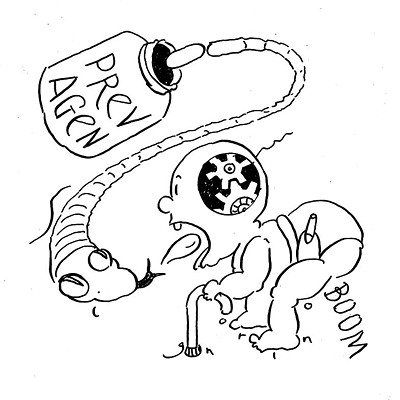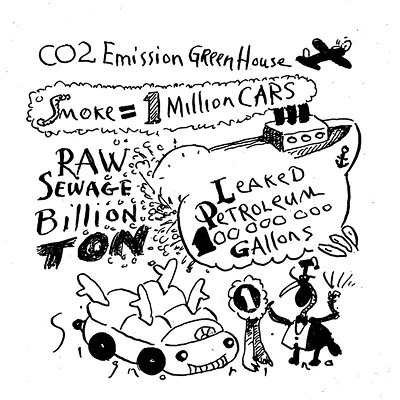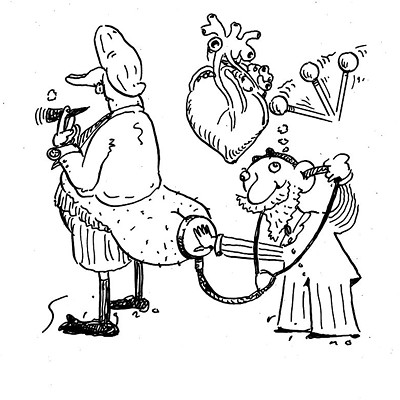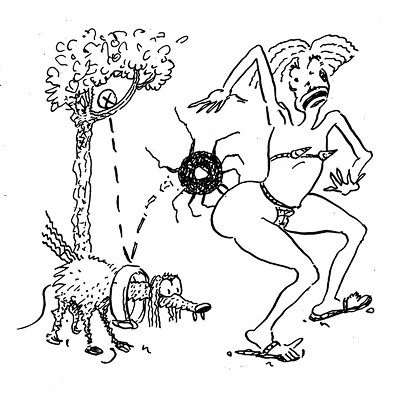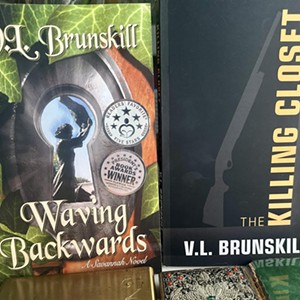The restaurant around the corner has started using corn-based "compostable" plastic takeout containers. They have a "7" recycling logo on the bottom, but also say they can't be recycled with other clear plastics. What happens if I just throw them out? - Pattee Smithee
The short answer is: probably nothing. Compostable merely means the stuff is capable of being composted. There's no guarantee it will be, and given how much would need to go right, most likely it won't. That's not necessarily a problem. For years we've been told biodegradability is good, but you know what? A few scientists now suggest that, in some circumstances, maybe it's not. Confused? We're just getting started. First let's get a couple things straight.
The triangular chasing-arrows symbol with a number inside doesn't mean the product bearing it can be recycled. As I've explained before, it merely indicates what type of plastic the thing's made from. Type 7 is miscellaneous, which can't be recycled because the materials in the mix may have different melting points and such. Plastic types 3 through 6 can theoretically be recycled but seldom are because the financial return is minimal.
Second, composting and recycling are two different things. Nobody's talking about reusing compostable plastic to manufacture something else; they just want it to disintegrate into something harmless. The problem is, our idea of what's harmless has changed.
That brings us to your question. Several different types of "environmentally friendly" plastics are being promoted these days. Here are three approaches thought to be commercially viable:
• Biodegradable plastics break down naturally without special treatment. However, they're mostly made from nonrenewable petrochemicals and sometimes leave toxic residues.
• Oxo-biodegradable plastics contain chemicals that act like a time bomb, breaking the plastic apart after it's exposed to heat or sunlight. The process works, although not quickly.
• Compostable plastics are designed to break down under "composting conditions" and support plant growth without poisoning the environment in the process. The advantage of compostable plastic is that it's made from a renewable resource, typically cornstarch.
Probably the most common compostable plastic is polylactic acid, or PLA, which is made by a company called Cargill Dow, a joint venture of Dow Chemical and Cargill, the big agricultural processor. Used in everything from drink cups and water bottles to deli trays, PLA is advertised as compostable. However, breaking it down requires a special industrial facility that exposes the plastic to 140-degree-Fahrenheit heat for at least ten days-something you're not going to get by tossing it on your backyard pile of grass clippings.
You could try to sending PLA trash to a dedicated PLA composting operation, if you can find one. But realistically most compostable plastic is going to wind up in a landfill with all the other trash, where it'll last about as long.
So what's compostable plastic good for? It's made from a renewable resource, namely corn, but that doesn't necessarily make it environmentally friendly. Writing in Scientific American in 2000, Tillman Gerngross and Steven Slater pointed out that manufacturing PLA required more fossil fuels than it takes to make most plastics.
But they pointed out two benefits you might not suspect. First, much of the energy needed to turn corn into plastic could be obtained by burning the stalks and leaves, known as stover, which are normally discarded. Second, they argue, we don't really want PLA to biodegrade-just the opposite.
The big push these days is on figuring out ways to sequester carbon so it doesn't enter the atmosphere as CO2, one of the major greenhouse gases. What better way to do that than grow corn, which sucks CO2 out of the atmosphere, then use the corn to make plastic, which can be buried underground after use?
I'm not saying this is accepted scientific advice. But it's not out of the question that years from now the responsible thing may be to use all the plant-derived plastic packaging you can and then throw the stuff away.

